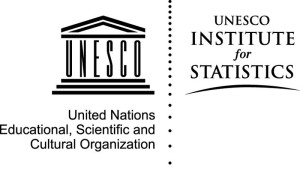UNESCO Institute for Statistics
Mission Statement
 The UNESCO Institute for Statistics is the statistical branch of the United Nations Educational, Scientific and Cultural Organisation ( United Nations Educational, Scientific and Cultural Organization ). It was established in July 1999 in order to reform UNESCO’s statistical capacities.
The UNESCO Institute for Statistics is the statistical branch of the United Nations Educational, Scientific and Cultural Organisation ( United Nations Educational, Scientific and Cultural Organization ). It was established in July 1999 in order to reform UNESCO’s statistical capacities.
The UNESCO Institute for Statistics
The UNESCO Institute for Statistics (UIS) was established in July 1999 to meet the growing needs of UNESCO Member States and the international community for a wider range of policy-relevant, timely, and reliable statistics in the fields of [Statistics:Education|education], science and technology, culture and communication.
The Institute’s functional autonomy, together with the maintenance of high professional standards and intellectual independence, enables it to respond effectively to these needs.
The UNESCO Institute for Statistics is hosted by the University of Montreal in Canada.
The Institute’s activities involve:
- collecting up-to-date statistics from across the world according to agreed quality procedures and disseminating them to the users in a form appropriate to their needs;
- developing the conceptual and methodological framework for the collection of internationally comparable data and indicators;
- working with Member States to improve their capacities to collect and analyze data of relevance to their policy initiatives;
- analyzing data in partnership with policy makers and researchers, and promoting wider and more informed use of data for policy purposes.
The UIS is a crucial link in an international network of experts and institutions dealing with statistics within UNESCO’s fields of competence.
Objectives
The Institute aims to:
- gather a wide range of quality statistical information to help United Nations Member States analyze the efficiency and effectiveness of their programs and to inform their policy decisions;
- interpret and report on the global situation with regard to education, science and technology, culture and communication.
The Institute’s current work program
- consulting the international community in order to determine the long-term data needs of UN Member States, regional and international organizations;
- carrying out fundamental reviews of work in the areas of science and technology, culture and communication in order to prepare a future strategy;
- conducting annual education surveys, in order to obtain a core set of quality education data, supported by training workshops held in all regions of the world;
- working with Member States to implement the ISCED97 (the revised International Standard Classification of Education) within their country;
- developing the program on World Education Indicators (WEI) in co-ordination with the Organisation for Economic Co-operation and Development as well as the program for European Union candidate countries in cooperation with EUROSTAT;
- supporting statistical capacity-building within countries, including the Africa-wide Strengthening National Education Statistical Information Systems (NESIS) program; and
- incorporating the EFA Observatory, the international monitoring body which examines progress towards the objectives of Education for All (EFA).UNESCO. (2002). UIS Mission. Retrieved August 17, 2010, from UNESCO Institute for Statistics: http://www.uis.unesco.org/ev.php?URL_ID=4977&URL_DO=DO_TOPIC&URL_SECTION=201
Resources
- 3 March 2014: new data tool on Women in Science Data Tool .
- 5 March 2013: launch of a new tool to browse education data for about 200 countries and territories – highlighting gender disparities in primary, secondary and tertiary education. Read more about Gender and Education Data Visualization
Fact sheets
- Early adolescent girls: a global view of participation in lower secondary education (English; French)
- Adult & youth literacy: global trends in gender parity (English; French)
- Gender parity in primary and secondary education (English; French)
- Trends in tertiary education: sub-Saharan Africa (English; French)
Interviews
Articles
- Global demand for teachers
- Global literacy rates are rising but women still lagging behind
- New literacy projections to 2015
Publications
- The World Atlas of Gender Equality in Education
- The 2011 Global Education Digest
- The 2010 Global Education Digest; and related datasets.
- The 2012 Global Education Digest
References
See also
- Secondary Education in Sub-Saharan Women and African Economic Development
- [Statistics:School Enrolment]Education
- [Statistics:Literacy Rates]
- Gender statistics
- United NationsECE Gender Statistics Database
- United Nations Educational, Scientific and Cultural Organization
- Education for All
- Access to Education
- Gender, Institutions and Development Data Base Variables: School Enrolment
- Gender, Institutions and Development Data Base Variables: Literacy Rates
- Gender, Institutions and Development Data Base
- Gender, Institutions and Development Data Base Variables: Composite indicators
- Gender, Institutions and Development Data Base Variables: Economic status of women
- Gender, Institutions and Development Data Base Variables: Family Code
- Gender, Institutions and Development Data Base Variables: Category:Health
- Gender, Institutions and Development Data Base Variables: Political Empowerment
- Primary Completion Rates
- Primary Education in Sub-Saharan Women and African Economic Development
- Net Intake Rate
- Net Enrolment Ratio (NER)
- Share of women in wage employment in the non-agricultural sector


